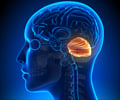Researchers have identified a chemical ‘switch’ that shuts off the signals necessary for the production and survival of neurons in the brain.

In the brain, transcription factors are critical for linking external stimuli to protein production, enabling neurons to adapt to changing environments. Members of the MEF2 family of transcription factors have been shown to play an important role in neurogenesis and neuronal survival, as well as in the processes of learning and memory. And, mutations of the MEF2 gene have been associated with a range of neurodegenerative disorders, including Alzheimer's and autism.
The process of NO-protein modifications—known as S-nitrosylation—was first described by Lipton and collaborators some 20 years ago. S-nitrosylation has important regulatory functions under normal physiological conditions throughout the body. However, with aging, environmental toxins, or stress-related injuries, abnormal S-nitrosylation reactions can occur, contributing to disease pathogenesis.
"Our laboratory had previously shown that S-nitrosylation of MEF2 controlled neuronal survival in Parkinson's disease," said Lipton. "Now we have shown that this same reaction is more ubiquitous, occurring in other neurological conditions such as stroke and Alzheimer's disease. While the major gene targets of MEF2 may be different in various diseases and brain areas, the remarkable new finding here is that we may be able to treat each of these neurological disorders by preventing a common S-nitrosylation modification to MEF2."
"The findings suggest that the development of a small therapeutic molecule—one that can cross the blood-brain barrier and block S-nitrosylation of MEF2 or in some other way increase MEF2 transcriptional activity—could promote new brain cell growth and protect existing cells in several neurodegenerative disorders," added Lipton.
"We have already found several such molecules in our high-throughput screening and drug discovery efforts, so the potential for developing new drugs to attack this pathway is very exciting," said Lipton.
Source-Eurekalert
 MEDINDIA
MEDINDIA



 Email
Email






